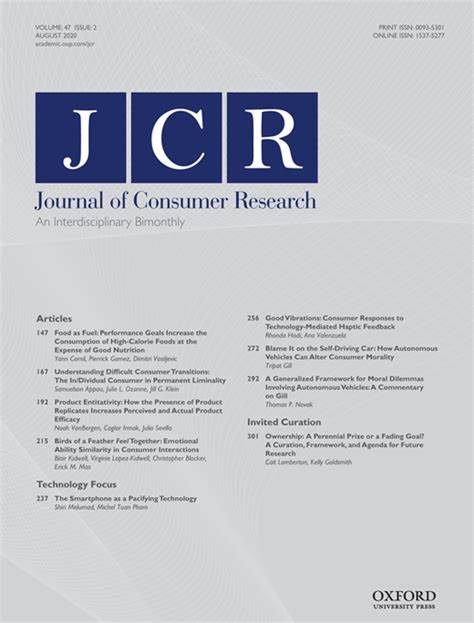Divergent Effects of Budgeting for Gifts versus Personal Purchases
IF 6.4
1区 管理学
Q1 BUSINESS
引用次数: 0
Abstract
Consumers often set budgets with the goal to minimize their spending. Contrary to this traditional interpretation, our research suggests that budgets can take on a different psychological meaning depending on whether the budget is for a personal- or gift-purchase. Across 11 studies, we find that consumers aim to spend below their budgets for personal-purchases (budget-minimizing), but aim to spend the entirety of their budgets for gift-purchases (budget-maximizing). We differentiate budget-maximizing from spending-maximizing, showing that gift-purchasers are more likely to prefer “at-budget” than “above-budget” purchases. We also show that gift-purchasers have weaker savings goals than personal-purchasers—a difference that mediates the effect on their budget-minimizing and -maximizing tendencies. We explore multiple reasons that could explain why savings goals are less prevalent among gift-purchasers and find an upstream role for price consciousness, guilt, and perceived specialness. Finally, we find that consumers’ preference for spending the entirety of their budgets on gifts was moderated by two separate factors: consumers’ budget-slack and -salience. Our research adds to the literatures on mental budgeting, gift-giving and self-other decisions.礼品预算与个人购买预算的差异效应
消费者制定预算的目的往往是尽量减少他们的支出。与这种传统的解释相反,我们的研究表明,预算可能具有不同的心理含义,这取决于预算是用于个人购买还是礼品购买。在11项研究中,我们发现消费者的个人购买目标是低于预算(预算最小化),但购买礼物的目标是将全部预算用于礼物(预算最大化)。我们将预算最大化与支出最大化区分开来,表明礼品购买者更倾向于“按预算”购买,而不是“高于预算”购买。我们还发现,礼物购买者的储蓄目标比个人购买者弱——这一差异对他们的预算最小化和最大化倾向的影响起到了中介作用。我们探索了多种原因,这些原因可以解释为什么储蓄目标在礼品购买者中不那么普遍,并发现价格意识、内疚感和感知的特殊性在上游发挥作用。最后,我们发现消费者将全部预算花在礼物上的偏好受到两个独立因素的调节:消费者的预算松弛和显著性。我们的研究增加了关于心理预算、送礼和自我其他决定的文献。
本文章由计算机程序翻译,如有差异,请以英文原文为准。
求助全文
约1分钟内获得全文
求助全文
来源期刊

Journal of Consumer Research
BUSINESS-
CiteScore
12.00
自引率
9.70%
发文量
53
期刊介绍:
Journal of Consumer Research, established in 1974, is a reputable journal that publishes high-quality empirical, theoretical, and methodological papers on a wide range of consumer research topics. The primary objective of JCR is to contribute to the advancement of understanding consumer behavior and the practice of consumer research.
To be considered for publication in JCR, a paper must make a significant contribution to the existing body of knowledge in consumer research. It should aim to build upon, deepen, or challenge previous studies in the field of consumption, while providing both conceptual and empirical evidence to support its findings.
JCR prioritizes multidisciplinary perspectives, encouraging contributions from various disciplines, methodological approaches, theoretical frameworks, and substantive problem areas. The journal aims to cater to a diverse readership base by welcoming articles derived from different orientations and paradigms.
Overall, JCR is a valuable platform for scholars and researchers to share their work and contribute to the advancement of consumer research.
 求助内容:
求助内容: 应助结果提醒方式:
应助结果提醒方式:


